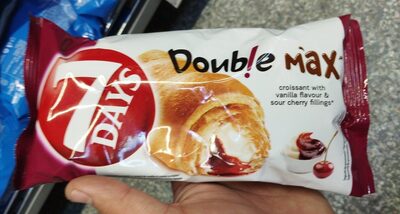
Barcode: 7622201392291
Double Max
HARAM
📝 Reason: Islamic jurisprudence categorically deems components in this product as Haram. Faithful Muslims must avoid it completely due to non-permissible sources or processing methods.
🏷️ Category: Snacks, Sweet Snacks, Sweet Pastries And Pies, Viennoiseries, Croissants
📄 Certificates: N, /, A, Vegetarisch
Ingredients:
Details
Understanding the Halal Status of Double Max
When it comes to food products, one of the main concerns for Muslim consumers is whether they align with Islamic dietary laws. Double Max is a snack that has recently garnered attention, and here, we delve into its halal status and the reasons behind its classification.
Why is Double Max Considered Haram?
The product Double Max is categorized as Haram according to Islamic jurisprudence. This classification primarily arises from the presence of ethyl alcohol among its ingredients, which is strictly prohibited in Islam. It’s essential for faithful Muslims to avoid products containing non-permissible sources or ingredients.
Ingredient Breakdown: What’s in Double Max?
To fully understand the halal status of Double Max, we need to examine its ingredients closely:
- Wheat flour: Permissible in Islam.
- Palm oil: Permissible in Islam.
- Sugar: Permissible in Islam.
- Glucose-fructose syrup: Permissible in Islam.
- Cherries (3%): Permissible in Islam.
- Skimmed milk powder: Permissible in Islam.
- Sunflower oil: Permissible in Islam.
- Yeast: Permissible in Islam.
- Dextrose: Permissible in Islam.
- Emulsifiers:
- Mono- and diglycerides of fatty acids: Permissible in Islam.
- Sodium stearoyl-2-lactylate (E481): Considered problematic for halal status.
- Polyglycerol esters of fatty acids (E475): Considered problematic for halal status.
- Wheat gluten: Permissible in Islam.
- Iodized salt: Permissible in Islam.
- Ethyl alcohol: Haram!
- Aromas: Permissible in Islam.
- Preservatives:
- Calcium propionate (E282): Permissible in Islam.
- Potassium sorbate: Permissible in Islam.
- Gelling agent (pectins): Permissible in Islam.
- Egg yolk powder: Permissible in Islam.
- Acidity regulators:
- Phosphoric acid: Permissible in Islam.
- Diphosphates: Permissible in Islam.
- Citric acid (E330): Permissible in Islam.
- Lactic acid: Permissible in Islam.
- Stabilizer (cellulose gum): Permissible in Islam.
- Lactose (from milk): Permissible in Islam.
Considerations Based on E-numbers
In food labeling, E-numbers represent various additives. While many of the components in Double Max are permissible, the presence of ethyl alcohol and specific emulsifiers, like sodium stearoyl-2-lactylate (E481) and polyglycerol esters of fatty acids (E475), raises significant concerns for halal compliance. These ingredients derive from processes or sources that are not acceptable under Islamic dietary laws.
Conclusion: Consumer Responsibility
For those who seek halal-compliant snacks, understanding the ingredients and E-numbers is crucial. While Double Max includes several components that are generally considered permissible, the inclusion of ethyl alcohol and some problematic emulsifiers leads to its categorization as Haram. It’s advisable for Muslim consumers to avoid this product and opt for alternatives that explicitly meet halal standards.
Certification and Labeling: Double Max does not carry halal certification, which further emphasizes the need for careful scrutiny in food selection for dietary observance.
